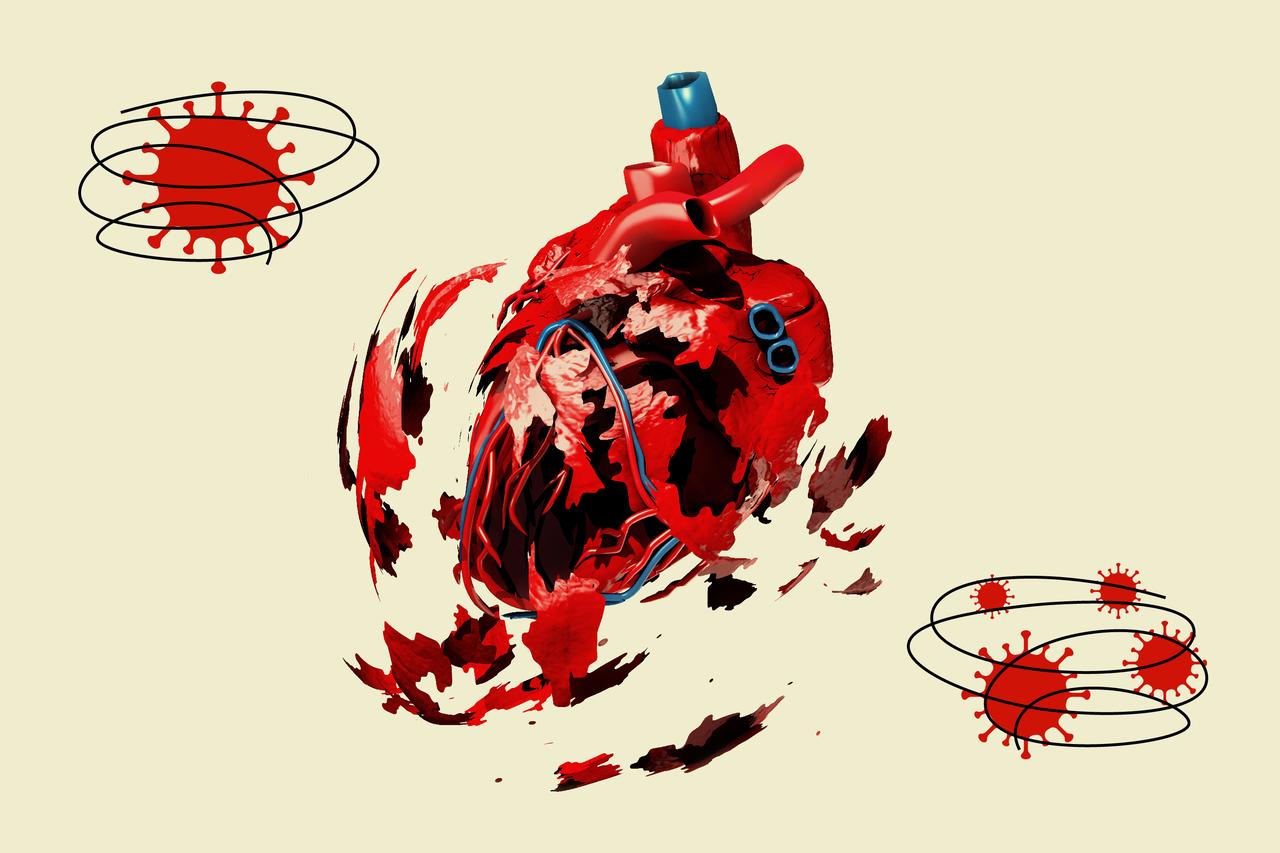While the mortality rate from COVID-19 is far lower than initially projected, the disease can leave people with a bevy of health problems of unknown duration; from fatigue, to lingering respiratory issues, to loss of taste and smell.

Now, we can add heart damage to the list of common post-COVID complications, according to a new study.
The long and short of it: Older individuals with pre-existing heart issues, or those with ‘sleeper’ heart conditions which have gone undiagnosed, are at the most risk.
While we’ve known since at least February that coronavirus was suspected of causing – or contributing to – cardiac problems, the extent has been largely unknown. In April, The Harvard Gazette detailed the “multiple ways” COVID-19 may spark cardiac damage;
First, people with preexisting heart disease are at a greater risk for severe cardiovascular and respiratory complications from COVID-19. Similarly, research has shown that infection with the influenza virus poses a more severe threat for people with heart disease than those without cardiac problems. Research also shows that heart attacks can actually be brought on by respiratory infections such as the flu.
Second, people with previously undiagnosed heart disease may be presenting with previously silent cardiac symptoms unmasked by the viral infection. In people with existing heart-vessel blockages, infection, fever, and inflammation can destabilize previously asymptomatic fatty plaques inside the heart vessels. Fever and inflammation also render the blood more prone to clotting, while also interfering with the body’s ability to dissolve clots — a one-two punch akin to throwing gasoline on smoldering embers. –The Harvard Gazette
Last month the President of Burundi died of a sudden heart attack at the age of 55 after falling ill with coronavirus.
Now, a new study has found that more than half of COVID-19 patients have some type of heart damage, according to Newsweek.
A study involving 1,216 patients – 813 of whom were diagnosed with COVID-19, revealed that 55% had abnormalities when given an echocardiogram between April 3 and 20.
The paper, published in the journal European Heart Journal – Cardiovascular Imaging, had an average participant age of 62, while 70% were male.
Sixty percent of the scans were performed in a critical care setting, such as an ICU unit or emergency room, while the others were carried out in general medicine settings, cardiology, respiratory, or COVID-19 wards. Some 54 percent of the patients had severe COVID-19.
Those with abnormal scans were more likely to be older and have certain underlying heart problems. But after the team excluded patients with existing heart conditions from their analysis, the proportion of abnormal scan results and those with severe cardiac disease was similar. This suggests that the issues were related to COVID-19, they said. –Newsweek
In short, people with cardiovascular disease, or who are at risk of developing it, have a worse prognosis.
If only most advanced nations hadn’t been gorging on fast food for three decades as physical fitness took a backseat, leading to epidemic levels of heart disease.